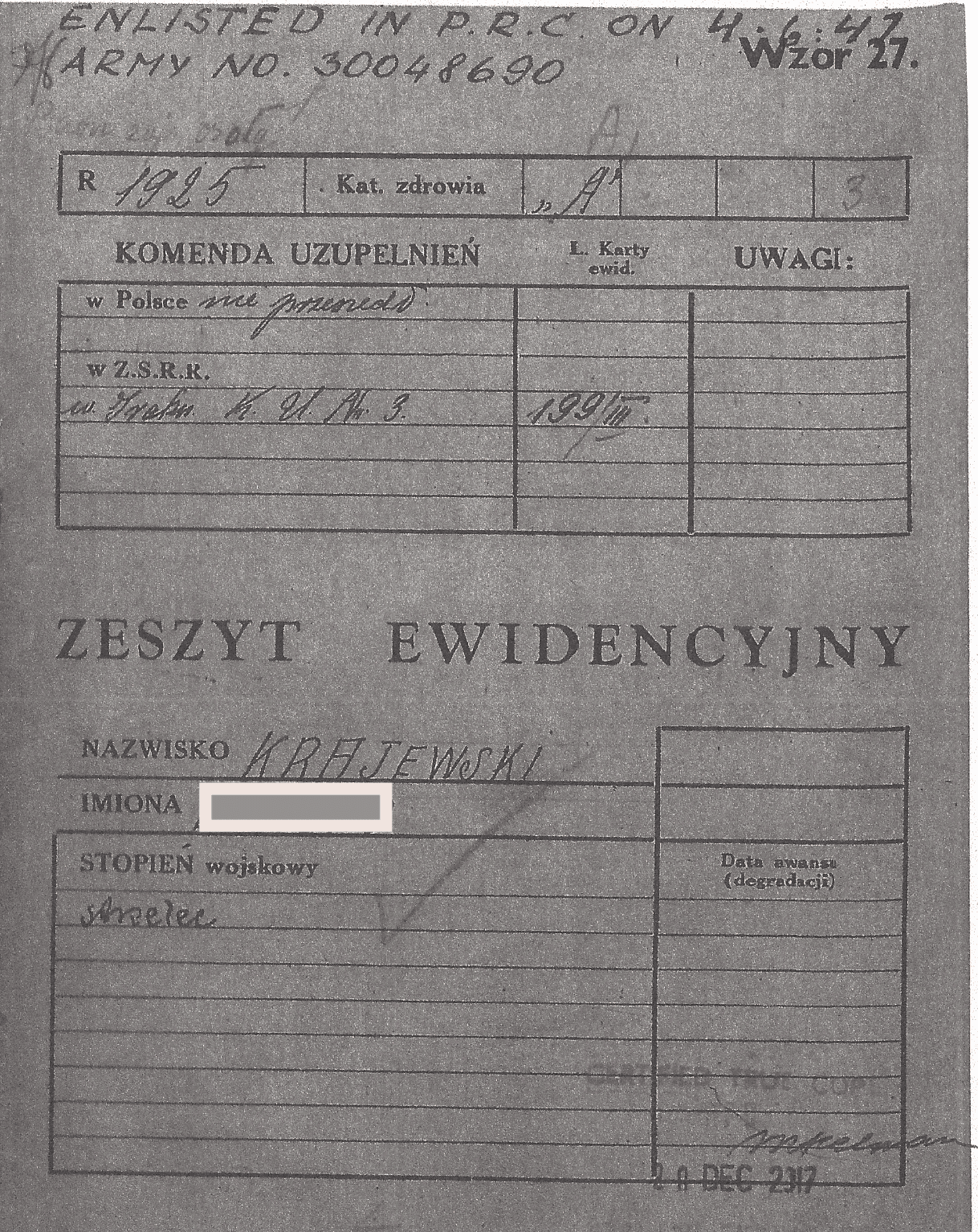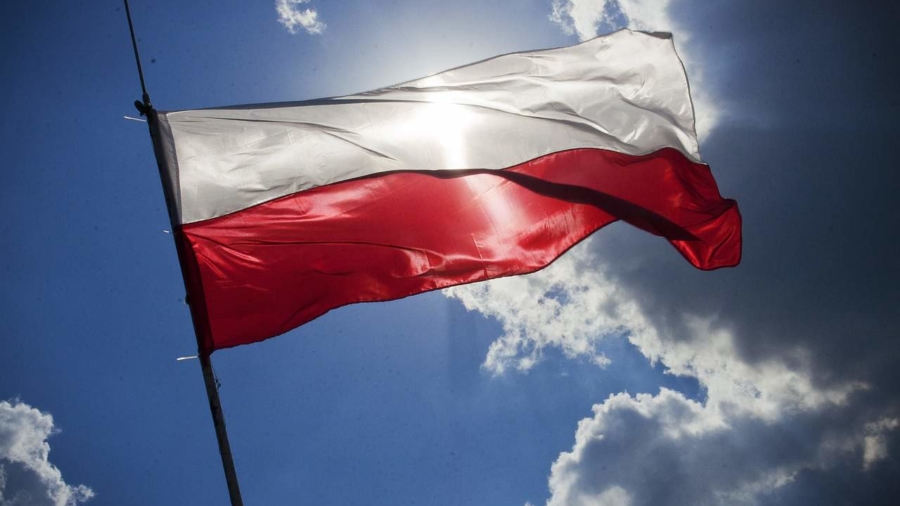Having previously written about my own personal experience with becoming a Polish citizen by descent, the purpose of this post is to provide you with a more comprehensive account of claiming Polish citizenship by right of blood.
What is the ‘right of blood’ principle?
In your reading about claiming Polish citizenship through ancestry, you may well have come across the Latin term jus sanguinis. It means ‘right of blood’ and is a principle of nationality law by which citizenship is determined or gained according to the nationality or ethnicity of one or both parents.
How does Polish citizenship law apply to people born in countries which offer birthright citizenship?
In contrast to the ‘right of blood’ is the ‘right of soil’ (jus soli). With the ‘right of soil’, or birthright citizenship, one acquires citizenship according to the country of birth, irrespective of the citizenship of their parents.
Polish citizenship law also applies to people born in nations with the ‘right of soil’. For example, if you were born in the United States to a Polish parent (or a parent of Polish descent), you can claim Polish citizenship as well as acquire US citizenship.
‘Right of blood’ and Polish citizenship – Why Polish nationality law may benefit you
The first Polish Citizenship Act came into force in 1920. Since that year, the rule of the ‘right of blood’ has been in operation. Therefore, Polish citizenship is automatically acquired at birth if at least one parent holds Polish citizenship at this time. Moreover, if any other of the ancestors in your line of direct kinship were Polish, you also have the right to certify your Polish citizenship.
Put simply, if your great-grandfather was Polish, his citizenship would have automatically been passed down to your grandparent and further on to your parent. Therefore, you are technically a Polish citizen by ‘right of blood’ from the moment of birth. In a nutshell, Poland’s citizenship law imposes no generational limits on eligibility.
1920 is a key year when it comes to your right to obtain your Polish citizenship certificate. With the founding of the Second Polish Republic after World War One, you need to prove that your ancestor/s lived in Poland and did not emigrate until after 1920. There’s no need to panic. Your ancestor almost certainly emigrated from Poland as a Polish citizen.
Summing up, being able to claim Polish citizenship by right of blood means that your family may apply for Polish citizenship after many generations. There’s no requirement for you to live in or visit Poland or even have a command of the Polish language.
Are there any snags when it comes to claiming Polish citizenship by right of blood?
Naturally, not every claim for Polish citizenship through the right of blood principle is plain sailing from the beginning to the end of the procedure.
As soon as the Polish authorities acknowledge that you can claim citizenship through your bloodline, you will be issued with a formal paper known as a Polish citizenship certificate.
Proving blood ties with vital records
Of course, you need to prove the line of descent in your family. You might think that it’s enough to submit your Polish ancestor’s vital records, such as a birth certificate. However, one’s birth certificate is tied to the rule of land – not the rule of blood. This document merely proves where your ancestor was born and who their parents were. Therefore, you aren’t able to base your application for citizenship on it.
Your ancestor’s certificate of marriage registration (Akt Małżeństwa) is also important because it proves that a child was born in wedlock. Moreover, your relative’s death certificate contains vital data – place of birth and marital status. However, similar to the birth certificate, these documents only prove your kinship. They cannot serve as the main spark for the procedure of applying for Polish citizenship.
To quote Attorney at Law and founder of Lexmotion Law Firm, Małgorzata Nowotyńska:
“ To give an example – provided you possess the death certificate of your grandfather, and the marriage certificate of your parents and your birth certificate – we get the entire kinship in two generations perfectly described.
Which documents prove Polish descent?
In light of the revelations in the previous section pertaining to vital records, it’s crucial that you shift your attention to documents which prove Polish descent and give you the right to claim Polish citizenship by right of blood:
- Polish passport
- Polish ID Card (Dowód osobisty) – Polish pre-WW2 ID cards were also passports. On the inside, there is information that the ID card is also a passport
- Re-Immigration Registration Card (Karta Rejestracyjna Reemigracyjna) – a completely valid passport. After the First World War, there was a great deal of migration, largely due to borders shifting and economic changes. These re-immigration registration cards were issued to Polish citizens returning to their homeland in consulates abroad. The only purpose of the cards was to allow entry into Poland. Despite the fact that they operated only one-way, they still proved that the traveller was a Polish citizen
- Registration Card (Karta Meldunkowa) – Every resident in Poland was required to register their stay in a dwelling. Moreover, landlords were also compelled to keep a record of tenants. In the past, only Polish citizens were able to register their stay. Therefore, your ancestor’s registration card is an extremely useful document which confirms Polish citizenship.
- Military book/Registration Book (Książeczka wojskowa/Zeszyt ewidencyjny) – On the face of it, it may appear that a military book, which every soldier receives in order to keep a running record of his service, is loosely connected to citizenship. However, one has to be a citizen of Poland to serve in its army. Hence, the military book confirms Polish citizenship. If you have read my story of gaining Polish citizenship, which I linked to in the opening paragraph in this post, you will know that the UK Ministry of Defence (MOD) held my grandfather’s Polish military records. During the Second World War, he fought for the Polish forces under British command. This is another key condition for securing citizenship – the fact that your grandfather or great-grandfather never left the Polish armed forces. Anyway, the MOD sent me a copy of my grandfather’s book of military records, as you can see in the image below.

Overall, if you come across any of the five aforementioned documents, and none of your ancestors lost or renounced their citizenship, you will almost certainly verify Polish citizenship status.
Possible genealogical research required
In the interview below with Michał Petrus, an esteemed Polish citizenship specialist, we can learn that people very rarely possess their ancestors’ passports and ID cards. According to Michał, it’s essential to focus on tracking down administrative documents/records after 1918. These include military draft lists, population censuses and voter lists. It may be necessary for you to hire a law firm or genealogist to search for documents, for example, in Polish, Belarusian or western Ukrainian archives.
Final Thoughts
If you’re looking at securing your Polish citizenship by right of blood, you may be overwhelmed by all the information online. What’s more, you might worry that you have a mountain to climb when it comes to attaining all the documents you need to get your citizenship certificate.
All I can say is, it’s very rare that your ancestors would have renounced or simply ‘lost’ Polish citizenship. Even though your application may encounter the odd unexpected bump in the road which requires some additional archival research, it’s just a matter of being persistent and remaining patient.
Further reading on the many documents which can verify your Polish citizenship status
Documents which prove Polish citizenship through ancestry – with Michał Petrus
Polish Citizenship by Descent FAQ Guide
Got any questions? Perhaps Michał has answered them in this extremely thorough FAQ guide on claiming Polish citizenship by descent:
Claiming Polish Citizenship by Descent – Complete FAQ Guide

